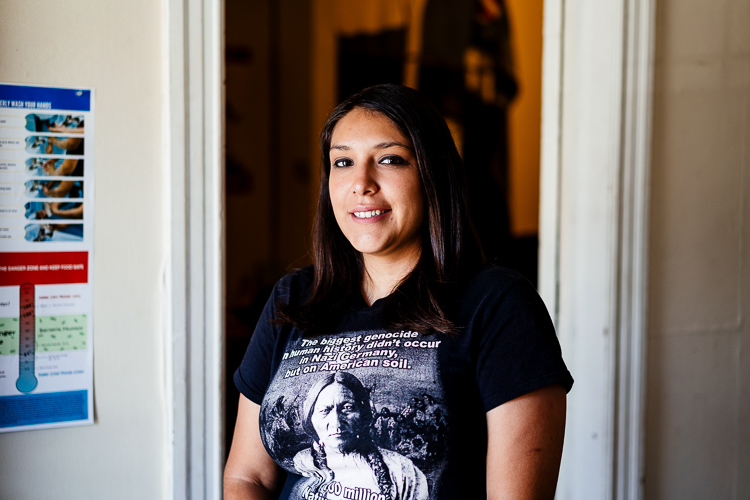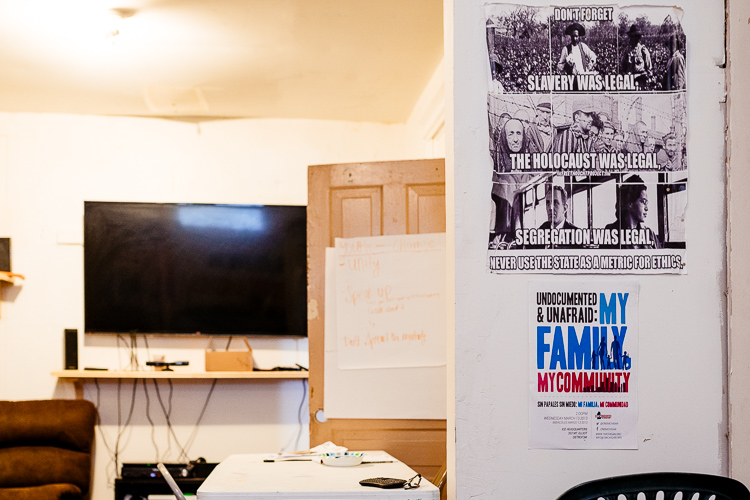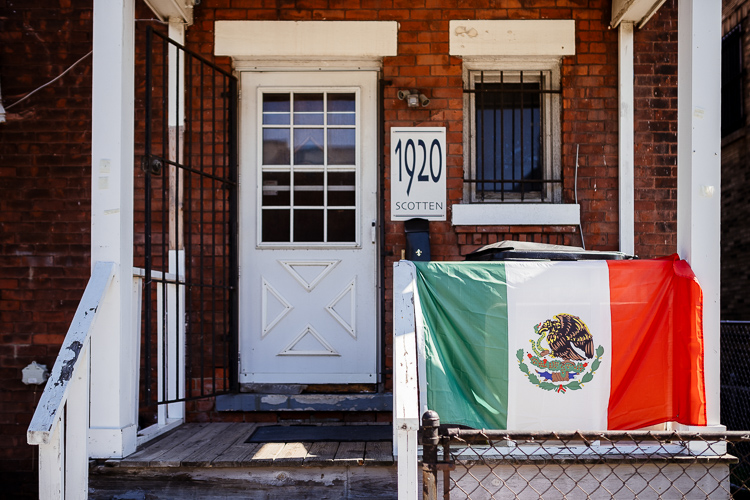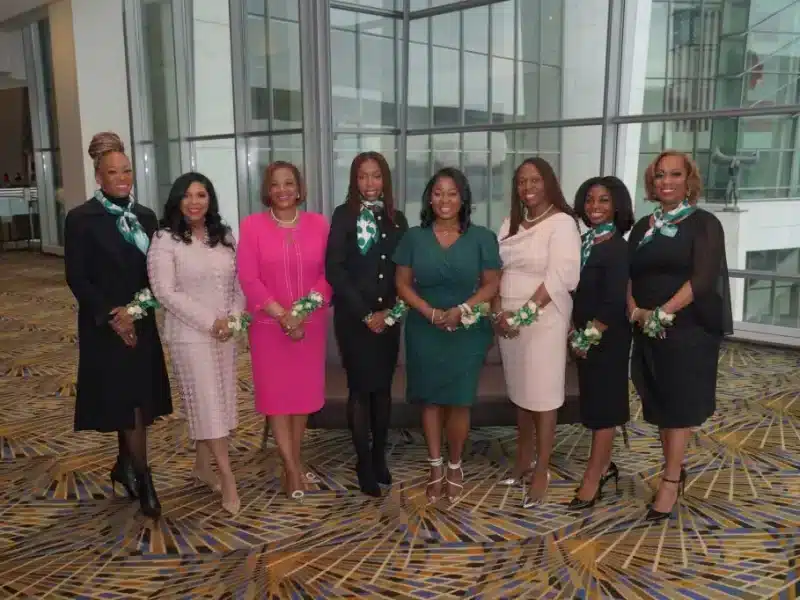This southwest Detroit community organizer is fighting for the rights of her people
Samantha Magdaleno has been an activist for almost her entire life. Today she's a director at One Michigan, which provides resources to immigrant communities and supports those involved in deportation cases.
Samantha Magdaleno’s journey as an activist started before she was born.
Her uncle and dad worked for nonprofits, and her aunt is Mary Turner, whose name is emblazoned across the Center for Advocacy that is home to State Rep. Stephanie Chang’s office and community-based initiatives such as the fellowship program Girls Making Change.
It’s no surprise, then, that Magdaleno began her own career in activism at a young age. When she was 13, she started attending the summer youth program at the Detroit Hispanic Development Corporation. As an adult, she became its director of community organizing.
In high school, she joined Family, Career and Community Leaders of America, a nationwide program for high school students in family and consumer sciences education. During summer breaks from college, she would come back home from Texas where she was going to college to organize with One Michigan.
But it was the microaggressions she experienced throughout her education that opened her eyes to the systemic racism and inequities that people of color face on a regular basis. In kindergarten, whenever she spoke Spanish she was told to put her head down.
“I actually stopped speaking my language because I was afraid to go home to my grandparents and tell them that I had to put my head down,” she says.
Then there was the time in sixth grade when her social studies teacher wanted to divide up the class based on eye color. When she transferred to Huron High School in New Boston, where confederate flags were a common sight, one boy asked her if she even spoke English.
“My grandfather and my grandmother always told me to be proud of where we came from,” she says. “They always taught me that these are the circumstances we have to deal with when we lived in the city. And there’s a lot of systemic racism around that prevents people from actually furthering themselves.”
Her great-grandparents came to the U.S. as undocumented immigrants and experienced a great deal of discrimination.
“They say slavery is over, but when it comes to the undocumented community, [they are treated as slaves]. So with that in my head growing up, I always wanted to do something to help out my people.”
Magdaleno doesn’t give up easily. She studied psychology at the University of Texas—Pan American, where she decided to go to college an hour after her boyfriend broke up with her and canceled their plans to live together in New York (“I was not going to be that loser who stayed home after a breakup,” she says). When she returned to Detroit in 2014 for good, she wasted no time in community organizing, advocating for Detroit City IDs and pushing City Council to remove parking meters along Vernor she says would have been detrimental to small businesses.
Today Magdaleno is a director at One Michigan, an immigrant rights organization. The nonprofit provides resources to immigrant communities through trainings, organizing, and empowerment, in addition to supporting those involved in deportation cases. At their southwest Detroit office on Scotten Street and Vernor Avenue, they train youths to be activists through classes on building, art, fellowship, and music.
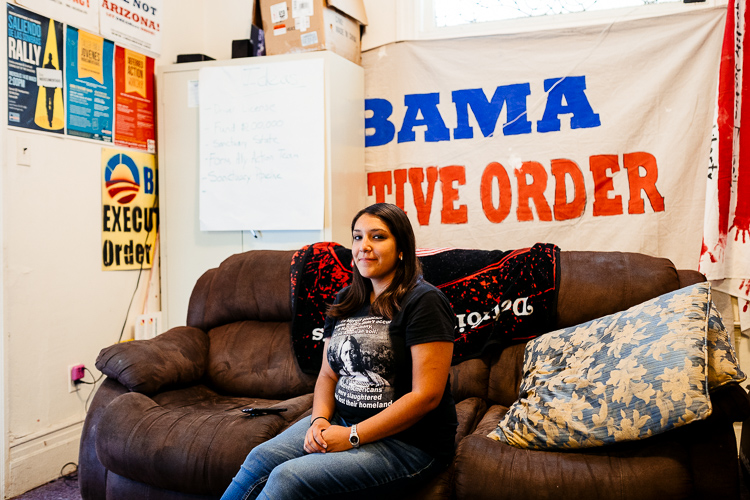
Magdaleno and Jose Franco, founder of One Michigan, are working on separating the organization into “two different buckets,” Magdaleno says. Franco will head up One Michigan for Immigrant Rights, and Magdaleno will take over One Michigan for the Global Majority.
“We’re looking at doing a lot more cultural awareness, a lot more cultural pride,” Magdaleno says. “When the Trump Administration came out and said that Mexicans are sending rapists and drug dealers [to the U.S.], I feel as a country and specifically as a community, we never fully addressed that. … I’m seeing that a lot of our kids are very ashamed of being Mexican now and they’re trying to assimilate again instead of reaching for liberation.”
She also wants to focus on preparing youth for life after graduating college. One of the many youths whom Magdaleno has had a positive impact on is Darius Lewis, a 22-year-old senior at Lawrence Technological University studying mechanical and manufacturing engineering.
Lewis was part of the first Magdaleno’s first cohort at One Michigan. He joined after a classmate introduced him to the cause and met Magdaleno in 2014. One Michigan helped him learn how to manage his time better and juggle responsibilities.
He fondly remembers the time when Magdaleno took him and his fellow youths to Chicago on a retreat to learn more about undocumented students there. While at Sky Zone, a trampoline park, the students felt they were being discriminated against and she stood up for them. “We were able to spread the word and get an apology and compensation for our troubles,” Lewis says.
Franco, who first met Magdaleno in 2012 when he was organizing a trip to Washington, D.C. for people advocating for the DREAM act, says Magdaleno “connects with them as if they’re her best friends, not in the typical patronizing style many older folks try to talk or engage with youth. She creates a true bond and trust relationship with the youth.”
Franco also pushed Magdaleno to run for state rep in the August primary. “Samantha is fearless and unapologetic with her fight for injustice, which I believe no candidate or current politician holds,” Franco says. “She has the strongest voice for the immigrant and oppressed people overall.”
She came a bit late to the game and campaigned hard throughout the summer, but in the end lost in a crowded field. But she’s happy with the result. While it was frustrating and intense at times, now that she’s gone through the process, she’s not ruling out another run for political office.
“I literally was born with everything stacked against me,” she says. “I’m brown, I’m Mexican. My parents were teen parents. My dad was in a gang, went to jail, was convicted of felonies. My great-grandparents were undocumented.
“So I wasn’t even supposed to run for office. That’s the thing that people don’t understand. My name wasn’t supposed to ever be there. I was never supposed to be able to even feel the confidence that I fit in. So running for office was to prove to my people that we don’t have to have this quote-un-quote professional colonial type of lifestyle to be able to represent your community.”
This article is part of “Detroit Innovation,” a series highlighting community-led projects that are improving the vitality of neighborhoods in Detroit, while recognizing the potential of residents to work with partners to solve the most pressing challenges facing their communities.
The series is supported by the New Economy Initiative, a project of the Community Foundation for Southeast Michigan that’s working to create an inclusive, innovative regional culture.
Photos by Nick Hagen.
